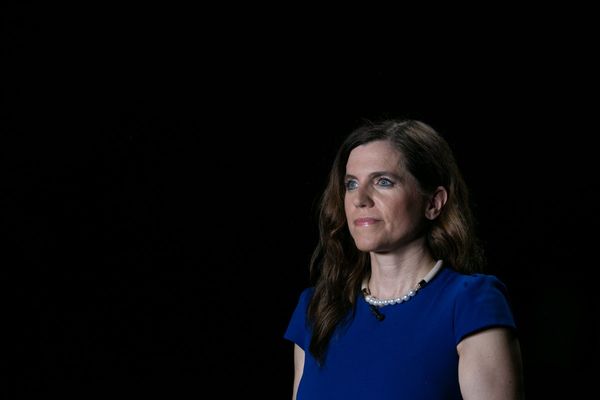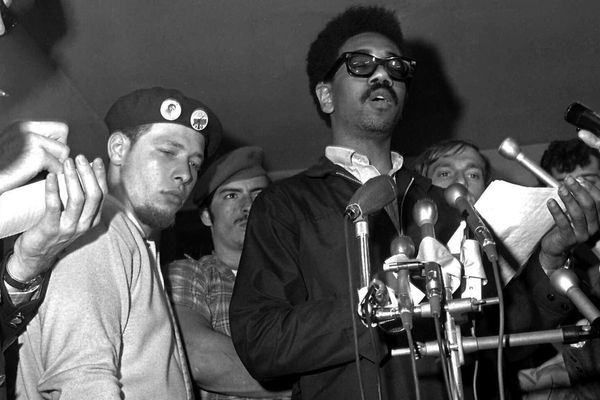
If the American public is aware at all that the United States intervened in Libya, that consciousness stems from the so-called Benghazi affair that congressional Republicans used as a cudgel against Hillary Clinton before and during the 2016 presidential election campaign.
The apparent insignificance of such a consequential event as the Libya intervention in the American consciousness is not in itself racist. Yet race and the racialization of Africa and Africans took center stage in so-called Western deliberations leading up to the intervention in Libya. Race played a dual role in the Libyan intervention. First, it shaped perceptions of what was permissible and who could mediate in Libya in a manner that is commonplace in international relations today. Second, race was one of the factors that authorized the marginalization of African leaders, African intellectuals, and non-Western governments when it came to making decisions about seeking peace or waging war.
What happened in Libya is not new. In 2003, following U.S. Secretary of State Colin Powell’s direct appeal to African countries on the U.N. Security Council, there was a similar scorn heaped on African leaders and elites for their near-uniform opposition to the 2003 U.S. invasion of Iraq. In these and other instances, African leaders are routinely faulted for moral weakness, corruption, or lack of appreciation of the stakes in global politics.
It never seems to matter that in many regards, from the 1960s Congo crisis to Namibian independence to opposition to apartheid, Africans have either taken the lead or their arguments have been vindicated in later years. Similarly, the chaos engulfing Libya today seems to vindicate the African view that inclusive peace talks and a constitutional transition were preferable to waging the kind of total war whose end was unpredictable.
To grasp how race shaped the views of foreign-policy makers during the Libya crisis, one has only to note two constants in the discourse around the eventual intervention: The first was the active erasure of Africa and African specialists from deliberations leading to the invasion. The second was the explanation given for this apparent slight—that African leaders and others could not be trusted to be impartial toward Libyan leader Muammar al-Qaddafi due to his presumed gifts to them and his supposed influence over African populations. Western leaders never stopped to consider that perhaps Libya’s immediate neighbors and leaders who’d known Qaddafi for decades might have something to offer.
This mistrust of Africa led France and other Western nations favoring regime change in Libya to sideline Africa altogether. This marginalization was presented in the press as “Africa’s loss of influence” while decisions were made in Istanbul, Moscow, and Berlin. In fact, France and its Western and Arab allies deliberately marginalized Africa by effectively preventing the African Union, its proposed mediators, and other prominent Africans—heads of state or not—from playing any significant role in mediating the Libyan transition supposedly demanded by the Arab street, which would somehow miraculously lead from Qaddafi’s tyranny to democratic rule. Republic of Congo President Denis Sassou Nguesso, the AU point man on Libya, was nearly omitted from the list of invitees at the Berlin summit on Libya in January. Ugandan President Yoweri Museveni told the BBC that Sassou Nguesso was merely invited as “tokenism to show that Africa was also involved.”
The marginalization of Africa occurred in tandem with the Arabization of the Libyan conflict when the Arab League, rather than the AU, was given a key role in the resolution of the conflict under U.N. Security Council Resolution 1973, adopted on March 17, 2011. That resolution gave preeminence to “the League of Arab States in matters relating to the maintenance of international peace and security in the region” and the implementation of the no-fly zone—the injunction to the Libyan army then not to fly warplanes toward Benghazi. This move opened the door to competing Arab governments, whose presence is still felt even today between Qatar, on one hand, and the United Arab Emirates and Saudi Arabia (aided by Egypt) on the other. These antagonists have now mobilized powers like Russia, France, Turkey, and others as allies and sponsors of different sides of the Libya imbroglio.
Consequently, the individuals who emerged as influencers, advisors to decision-makers, and spokespeople for Libyans and the international community did not include Africans. It was merely the latest chapter in what has been dubbed “the white man’s burden”—a colonial mindset that has viewed Africa as a place for Europe to act out its wishes. Indeed, from the 1884-85 Berlin Conference to the 1944 Brazzaville Conference to the 2011 Libyan intervention, Europe found comfort and justification in deciding the fate of Africa without consulting Africans. In lieu of Africans themselves, Europe has long relied on the advice of so-called humanitarians and colonial entrepreneurs like Henry Morton Stanley, who was the chief counsel on Congo to King Leopold II of Belgium.
The Libya intervention shows that little has changed. Former French President Nicolas Sarkozy selected Bernard-Henri Lévy as his lead counsel on Libya. The selection of a non-African specialist by Sarkozy did not come as a surprise. After all, on July 27, 2007, Sarkozy delivered a speech at Cheikh Anta Diop University in Dakar, Senegal, in which he declared that “the tragedy of Africa is that the African has not fully entered into history.”
Lévy, in the colonial tradition of depicting the white man as savior, has taken credit for the downfall of Qaddafi and for furthering the U.N.-endorsed responsibility to protect victims of war crimes and crimes against humanity. Lévy’s own account of his role reminds one of Lawrence of Arabia, a British colonel who emerged as counsel and played a central role in the 1918 Arab revolt against the Ottomans. This account is synthesized in a documentary written, directed, and produced by Lévy himself under the title of The Oath of Tobruk.
Western leaders like Sarkozy and their advisors like Lévy have long acted on the no-longer-utterable belief that Africans lack coherent moral and intellectual systems that require attention. It is an antiquated and dangerous view.
Decolonization opened space for Africans to formulate their own views on international morality—including the right to self-determination, universal citizenship, and reconciliation as a means of making peace. The well-established African approaches to these issues may be gleaned from debates, resolutions, and debates in postcolonial Africa extending from the 1960 Congo crisis to the wars of independence in Algeria and the former Portuguese colonies to arguments advanced by African front-line states in confronting South African apartheid.
Throughout these crises, African diplomats routinely put forward arguments in favor of self-determination and reconciliation as a condition of peace while generating a moral vision that has been lost on many observers on account of race and a colonial worldview—the inability to entertain the possibility of moral horizons and ethical principles on any significant scale in Africa.
The underlying skepticism toward African leaders runs deep. Before the invasion of Iraq, an American journalist asked me during a radio interview if the politically dependent African leaders of the financially dependent countries of Cameroon, Angola, and Guinea would cave to Powell’s demand to support the U.S. position against Saddam Hussein at the U.N. The reporter was stunned by my brief answer, which was no.
The obstinacy of African leaders and elites—with exceptions of course—on questions of conflict and conflict resolution baffles only observers who are oblivious to near-canonical statements, iconic actions, and awe-inspiring gestures from the likes of Nelson Mandela in South Africa, Patrice Lumumba in Congo, and Amílcar Cabral in Guinea-Bissau, among others. Even if only in cynical attempts to retain power and legitimacy, few African leaders would publicly disagree with or endorse a policy that seems to violate the kernel truth in Mandela’s famous speech during his 1964 trial.
In it, Mandela enunciated a view that progressives in Africa today understand as an ethical principle: to stand in defense of all lives, including those of our oppressors: “During my lifetime, I have dedicated myself to this struggle of the African people. I have fought against white domination, and I have fought against Black domination,” Mandela declared to the judge who would sentence him to life imprisonment until his release nearly 27 years later. “I have cherished the ideal of a democratic and free society in which all persons live together in harmony and with equal opportunities. It is an ideal which I hope to live for and to achieve. But if needs be, it is an ideal for which I am prepared to die.”
Cabral took up Mandela’s pronouncement as his own creed in relation to Portuguese colonialists in Africa, whose right to full citizenship in postcolonial Africa he defended, and the examples abound elsewhere across the continent.
When then-South African President Jacob Zuma traveled to Tripoli in 2011 to negotiate an inclusive diplomatic solution, Western media and policymakers doubted his motives. While Zuma is no hero and his tenure as president exposed many moral and ethical shortcomings, his policy toward Libya was based on Mandela’s principles.
Indeed, the solution Zuma proposed was predicated on the idea that the responsibility to protect applied to all. Just as Mandela and Zuma’s African National Congress had long envisaged universal protection in relation to white South Africans—rather than domination by the victors—Zuma imagined it was possible to bring about an end to Qaddafi’s regime while demanding that his children, family, and clan be protected against an impending onslaught by their opponents.
Without bothering to look for the moral principles underlying Zuma’s proposals, many critics simply cast suspicions on his motives. Others, including human rights advocates, faulted him for lack of moral clarity and political decisiveness. In contrast, they promoted a policy that would have been anathema to the principle of Mandela’s trial speech: a total war that risked physical and moral annihilation of a category of sinners (Qaddafi’s entire clan) by supposedly saintly people (those opposing him).
The undeclared total war was seized on by many Libyan political factions and militias that continue to wage it today in their respective struggles over power, territory, and resources. The cost of ignoring the moral clarity and political decisiveness that Africa supposedly lacked has now become clear. Libya lives with the consequences nearly a decade later, with no end in sight. The ensuing chaos has once again supplied racial stereotypes of life on the “coast of Barbary,” driven by imagined African, Arab, and Berber infighting. The racialized subtext prevails in reporting on the country despite the fact that France, Turkey, and the Arab Gulf states are the primary sponsors of the fighting forces on the ground.
What happened during the Libya crisis is not racism. Racism is a premeditated epithet that is instrumentalized to inflict deliberate harm. Race is another matter. In the Libya context, it appeared more like a curse that cast its spell over the Western-Arab alliance in Libya, thereby clouding both thought and policy. The curse of race has a long history, dating from the time of enslavement to the postcolonial era. Its spell operates like magic—an illusion staged for an audience waiting to believe or be entertained. Yet, as Libya proves, the spell has a stench: mindlessness and destruction.
It also hampers coherent thought and upholds demeaning and antiquated beliefs—including the notion of a permanent European mandate over Africa. This is conjoined with the mistaken impression that Europe is always justified in that trusteeship; that military and political power bestows reason; that self-righteousness necessarily affords wisdom; and that Africa does not possess operable and plausible moral and ethical systems.
That is the curse of race. The good news is that, like every curse, it too can be dispelled. That is up to those in its throes.







